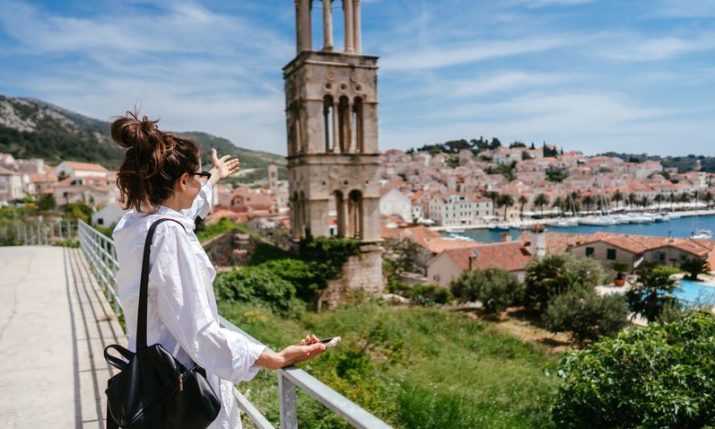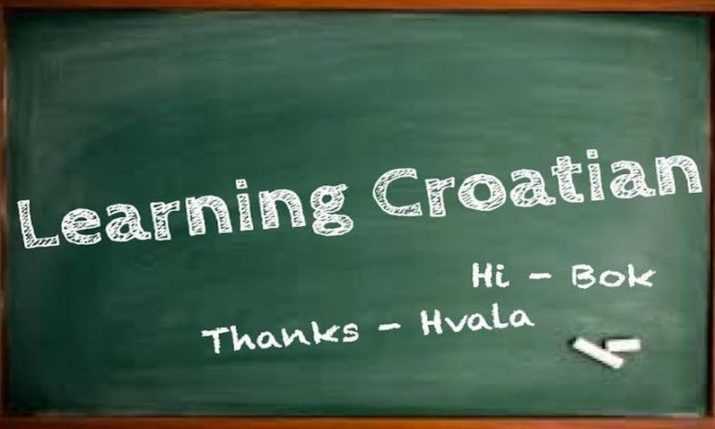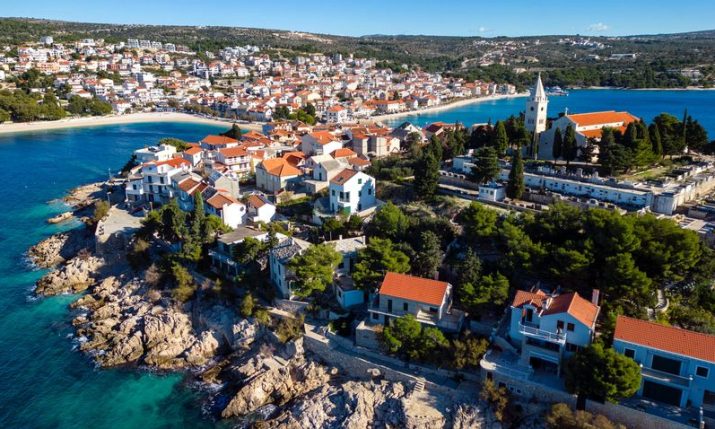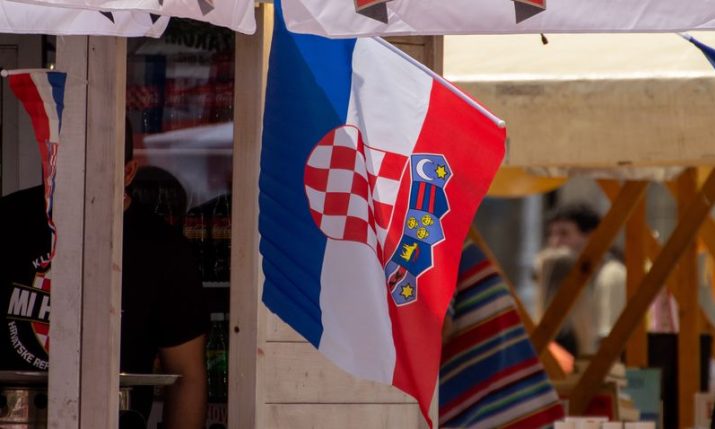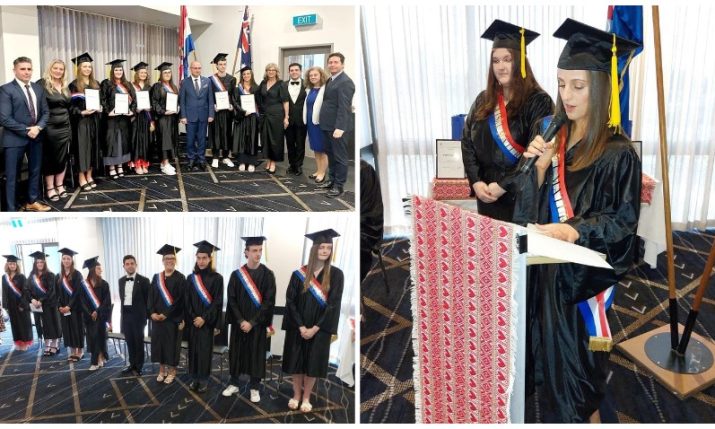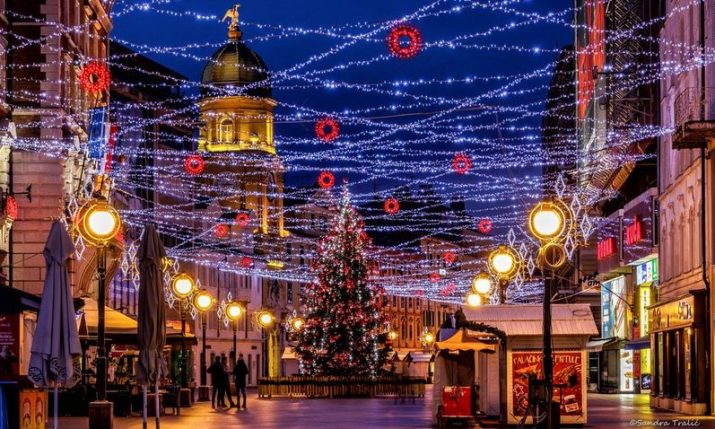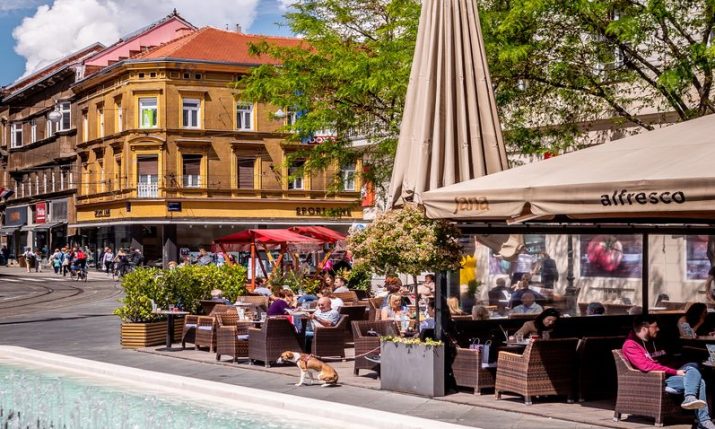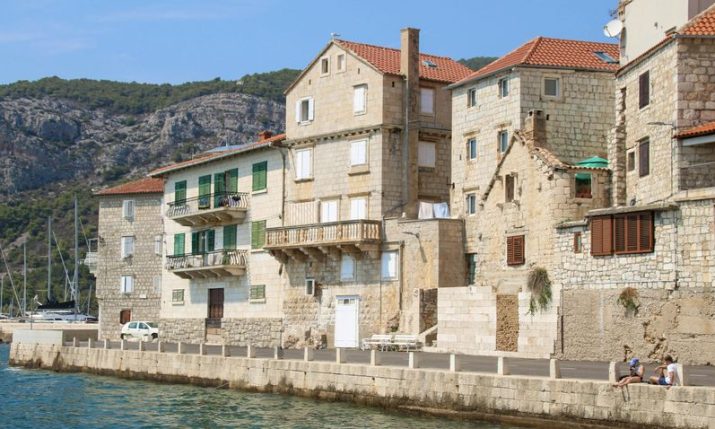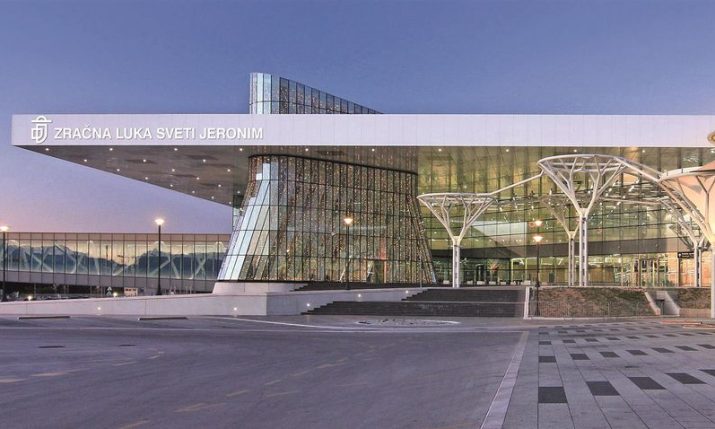Essential Dalmatian expressions guide
- by croatiaweek
- in Entertainment
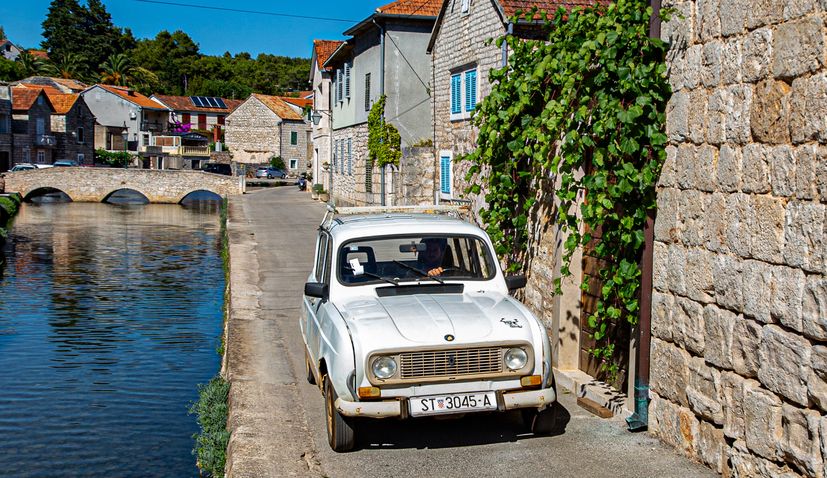
Dalmatia has specific expressions
The fabric of regional language differences in Croatia is a fascinating one. It is often said people from two villages on the same island can speak in slang without the other having a clue.
Portal Srednja.hr introduce us to some Dalmatian words that might serve you well. As they stress from the outset, not all terms listed universally applicable as some expressions are specific to a certain are.
It’s worth noting that often the differences lie only in variations. For example, the word “fork” has four versions in different parts of Dalmatia: perun, pirun, penjur, and pinjur.
Alongside local expressions, the differences between the coastal and continental vocabulary include numerous Italian words. These words have persisted in Dalmatia due to historical circumstances, trade, and cultural connections, especially in conversational language styles.
Moods, Behaviours, and States of Body and Mind
Under the blazing sun and picturesque surroundings, one may find it hard to engage in any unnecessary activity. To the average Dalmatian, this is simply “tramak” or “tramakavanje” – tasks or actions that one absolutely refuses to do because they’re overcome by “fjaka” (a state of body and mind when one can’t be bothered with anything, nor to do anything).
It’s much better to guštati (enjoy) in the shade and defiantly laze around to everyone’s dismay “(iz dišpeta”).
If someone has a “pegula” it means they’ve had a stroke of bad luck in a particular situation or in life in general, so they’re a “pegulan” – an unfortunate person. And while in a state of “fjaka” vegetating in your backyard lounger, the last thing you want is someone “priša” (pressuring) you or “grinta” (complaining) about a task not being done.
In such circumstances, an average Dalmatian can get very “idan” (angry) and might treat you to some juicy “beštimje” (swear words), calling you a “retaj” (fool, dropout) or “redikul” (weirdo, someone who’s an object of ridicule) because what right do you have to “palamudit” (act smart) and “pačat se” (meddle) where you don’t belong?
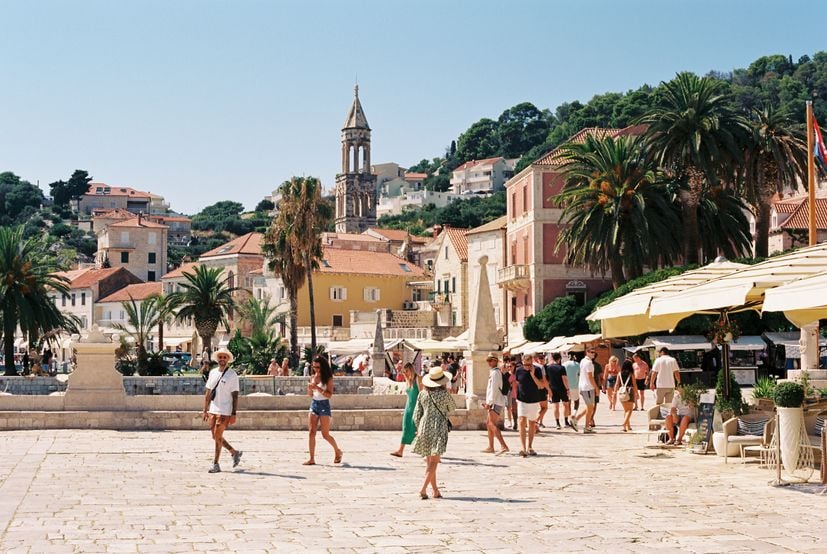
Hvar
Beach and Associated Facilities
The average tourist heading to the beach will carry a “borša” (bag) containing a “šugaman” (towel) and probably a “takuin” (wallet) and other personal items.
When the sun is too strong or the “mularija” (kids) are making a ruckus on the beach, it might be best to head to a nearby “štetkat” (restaurant terrace). After a break, it wouldn’t be bad to have fun in the sea playing “picigin” (a type of ball game in shallow water) or take a leap from the “mol/mul” (marina, concrete boat pier).
If you’re open and friendly, locals might invite you for a “ćakula” (chat, gossip) or to play cards with them, usually “briškula” or “trešeta.”
In the bedroom, you’ll definitely have a “kušin” (pillow), “lancun” (sheet), while “šofaj” is a bed for one person. In the room where you sleep, you’ll probably also have a “katunal” (nightstand). To keep the sun from disturbing your sleep, there’ll likely be “škure” (shutters) on the “punistrama” (windows). For reading before bed, you’ll need a “lanterna” (flashlight).
When you get out of bed, you probably head straight to the “lavandin” (washbasin), and after morning hygiene, it’s time for a meal. If you decide to have coffee, you’ll need a “kućarin” (coffee or tea spoon) to stir it, and for eating, you’ll need the rest of the utensils, i.e., “pijat” (plate), knife, “pinjur” (fork). While the coffee is on the “špaker” (stove) in the “kužina” (kitchen), you can fry a few eggs along the way.
In the summer heat, it’s recommended to avoid fatty foods and consume as much fruit and vegetables as possible. Stews are also welcome. A typical Dalmatian ‘spoon dish’ is “brudet” (cooked seafood with spices), and you probably wouldn’t refuse “pašticada” either. Pasta as well. Some people need a meal between breakfast and lunch, so they’ll “marendati” (have a snack).
To pour sauce from the “teča” (pot for cooking meals), you can use a “kacola” (ladle).
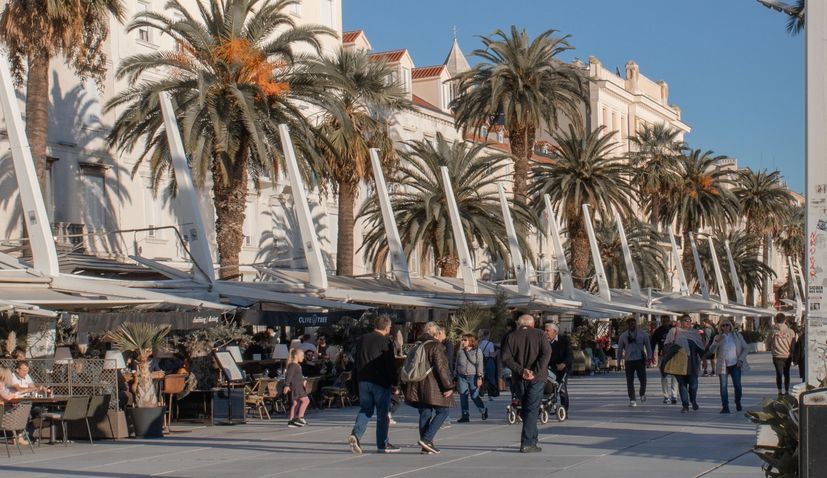
Split
To prepare all the mentioned dishes, you’ll need to go to “spiza” (food shopping) at the “pijaca” (market), where you’ll see a variety of ‘unusual’ names for ordinary fruits and vegetables.
Here are a few vegetables: “kapula” (red onion), “balancana” (eggplant), “pomidora” (tomato), “kukumar” (cucumber), “karota” (carrot), “petrusimen” (parsley), “fažol” (beans), “biži” (peas), “kavoli” (cauliflower).
When it comes to fruits, we have “čatrun” (watermelon), “pipun / cata” (melon), “barakokula” (apricot).
If you want to address a male person respectfully, you’ll call him “šjor” (sir), and he probably won’t mind if you also address him as “barba” (uncle).
However, if someone on the street asks you for a “španjulet,” don’t worry, it’s just a cigarette. For a girl of questionable morals, Dalmatians might say she’s “štraca,” and for a boy without sexual experience, he’s a “njufer.” Or on the other hand, they might say that he liked a girl in the club last night with an “rečina” (earring) and “ricava” (curly) hair, who was also wearing “rebatinke” (jeans) and “postole na take” (high-heeled shoes or sneakers with untied shoelaces).
“She was really ‘smišna’ (nice/cute/funny),” the same Dalmatian might say in a love-filled excitement. But he might also add that her friend was really “greza” (ugly, rude), and her boyfriend looked like a real “tukac” (idiot).
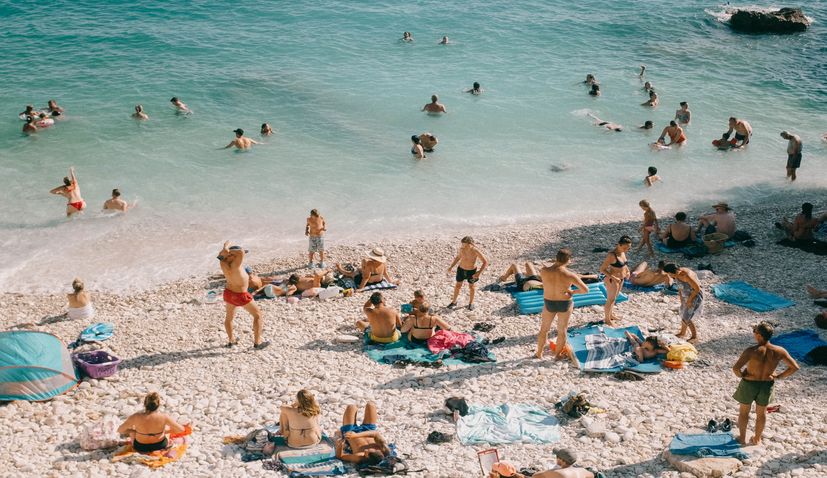
Dalmatia
If you’re a girl from the mainland and the Dalmatian from the previous situation tells you he’d like to take off your “mudante,” “ređipet,” or “veštu,” think carefully if you want that. These are, respectively, underpants, bra, and dress.
Only those with a lot of “šoldi” (money) can afford a “makina” (expensive car), and since everything isn’t about money, you can have fun in many places on the coast “mukte” (for free).

